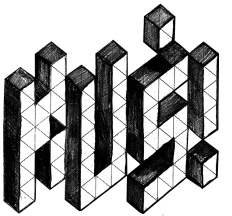
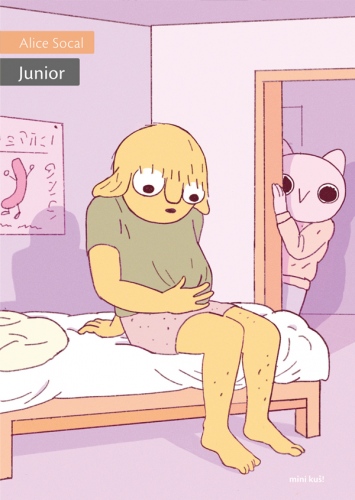
Italian-born, Germany-based illustrator Alice Socal offers Junior, a sweet little interlude about a couple that is expecting a baby, and the man becomes curious and maybe a little bit jealous of the woman’s condition. Spurred on by memories of the Schwarzenegger movie of the same name, creativity and imagination provide an immersive bout of empathy for him as he imagines his own pregnancy one sleepless night. Socal’s art is playful and includes one gorgeous nature spread as the fantasy extends to the book the man is reading to the woman and the expected baby.
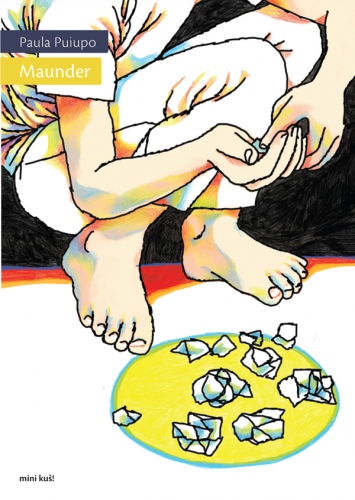
Maunder is part graphic medicine autobiography, part abstract mathematical philsophizing, packed into 24 tiny pages that has experimental Portuguese cartoonist Paula Puiupo explain a family heart condition that propels into a rumination on crossing dimensions. But its done through a lens of repairing the medical problem in mechanical terms and then applying facts of living to the ideas behind the dimensional theories. It’s all very abstract and personal, and Puiupo provides charm and energy amidst the visual mathematics, and it’s worth pointing out that the title could either refer to the word’s definition of rambling speech or to 19th Century English astronomer Edward Walter Maunder, who observed that there were periods of time where the sun lacked sunspots. Either seems appropriate.
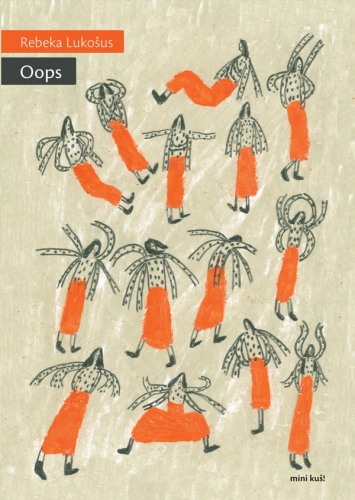
Latvian artist Rebeka Lukošus’ Oops is one of those comics I have a hard time responding to in words, since it’s really best to just experience it. It’s an abstract piece that has a vague narrative about a woman with six arms receiving a grocery delivery and partaking of the delights it holds while inhabiting other surreal situations that may or may not include a beach and a walk across the ocean. Maybe. The pleasures here aren’t in the narrative, but rather the playful execution that evokes feelings of curiosity and boldness in the face of isolation, the feeling that you’re never really alone with yourself unless that’s what you choose.
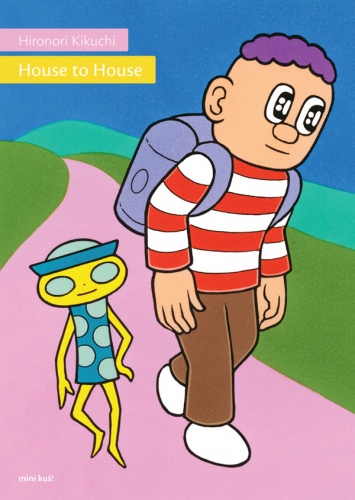
Japanese cartoonist Hironori Kikuchi’s House to House is like an exercise in congeniality. At its most basic, it’s a story about two friendly beings offering to deliver a book directly from the hands of an author to the embrace of a reader. Kikuchi allows his characters the space to visit each other and share some pastries and coffee, as well as quiet concern and respect upon the delivery of the book to someone in a more macabre setting as they attend to the wellbeing of the creature as the book is read and appreciated. It’s a simple fable about the connection between creators and audience, and the idea of the meaning of a creative work being a form of communication between people.
š! #35
This issue of the the kuš! flagship anthology is titled ’Bonkers’ and focuses on the unexpected, the nonsensical, the inexplicable. As with any issue of š!, this one is a wide mix of largely experimental comics that runs the gamut of styles and approaches, but always represents a curated whole that mirrors the experience of going to see a gallery show in comics form. There are going to be favorites based on taste, but I’m always pleased with the level of work featured.
I’ll just mention my favorite pieces here, but even those I don’t mention offer something worthwhile in this playful but challenging collection:
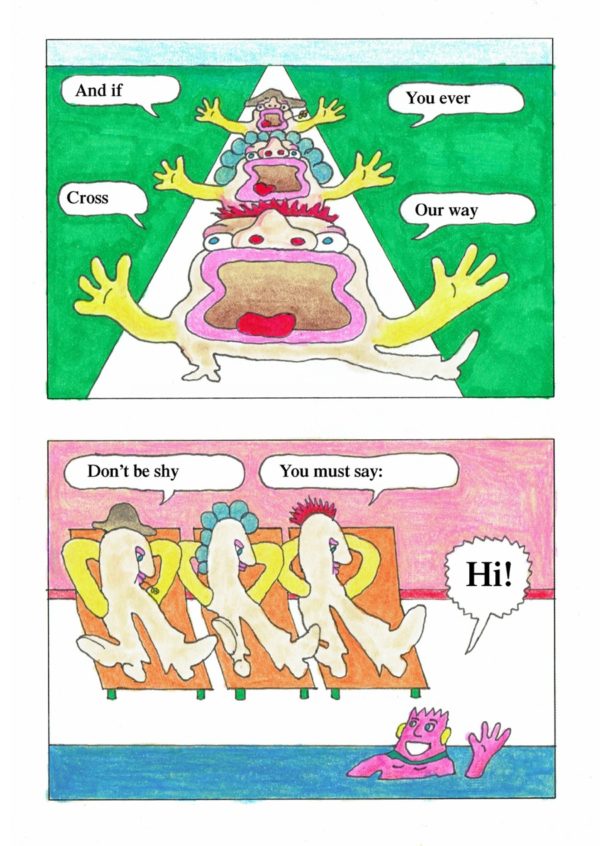
Estonian cartoonist Marko Mäetamm’s three-pager “Chainsaw” offers two bickering beings in total darkness and represented by their word balloons, one outraged, the other embarrassed by their calamitous miscalculation. It’s dark both in concept and presentation.
Brazilian cartoonist Fabio Zimbres’ “I Did A Comic” is a narrative that wraps itself around itself, an amusingly mundane explanation of the origin of itself, its strength being the sheer amount of details that are left out and leave the reader wondering what is really going on. Once you get the answers, they are indecipherable, and the idea of comics as personal revelation transforms into one of comics as manifestations of confusion and instruments of obfuscation in a world of no provable truth anyhow.
Jul Gordon from Germany offers “OMG,” a sublime, formless depiction of an ever-changing crowd of people moving through an unspecified space. The story is in the slices of moments that are included in what Gordon puts down on the page — people in a rush, people oblivious to what else is around them, people caught up in an amusing moment, people who look lost either in the public space or in their own lives. It’s a beautiful tapestry of all the fractured parts that create a creature called humanity.
Coming from Mexico, Émilie Gleason’s “Jacuzzi” reads like a crazed dream, with that kind of logic dictating what unfolds for Gleason as she goes to work in a jacuzzi and after certain revelations there, tries to hide a giant diamond up her butt. It’s a clever and hilarious story about anxiety.
America artist Jason Herr’s “Bonk Rebirth” makes no linear sense, but his intricate, absurd artwork that incorporates , among other things, a grotesque, big-headed man, a gaudily-decorated duck, and some anatomical designs makes me want to see more.
“The Pitch” by Latvian collaborators Ernests Kļaviņš & Andrejs Kļaviņš manages to bring together so many modern buzz concepts into a presentation of a ridiculous and pretty painful-seeming product. Taking place at a trade show, it’s an amusing look at the way commercial interests seize progressive political and social concerns in order to sell, sell, sell, and how some people look at this as a symbolic victory.
There’s also some exceptional artwork featured in stories by Latvian cartoonist Zane Zlemeša and Samplerman, a French artist whose collage work is flawless and insane.


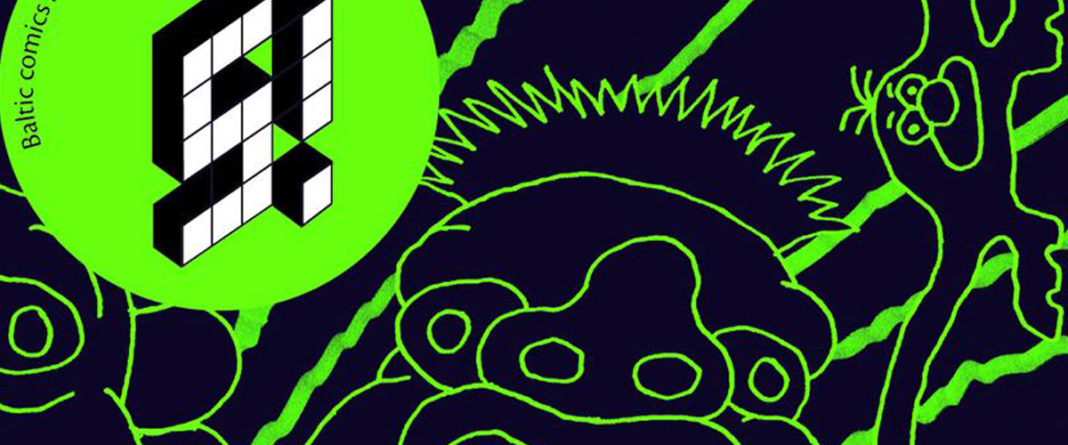
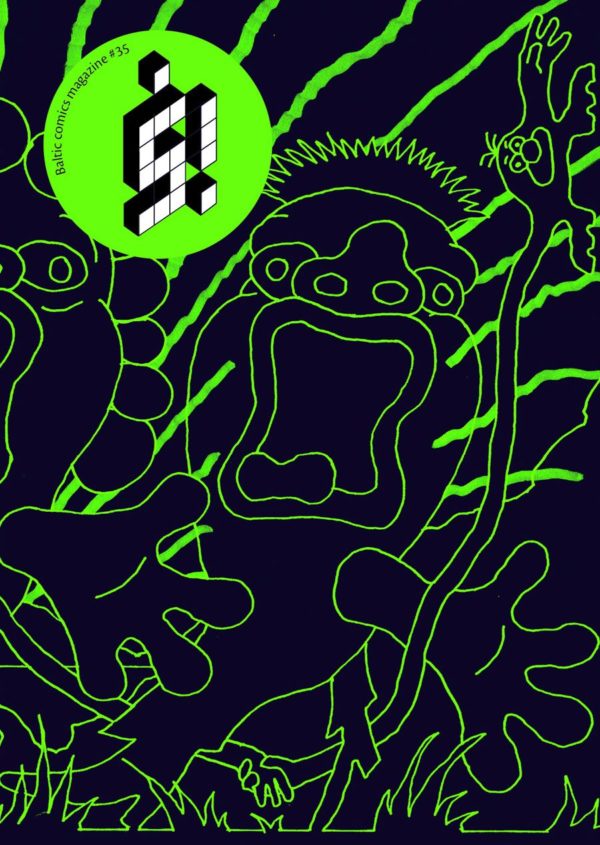
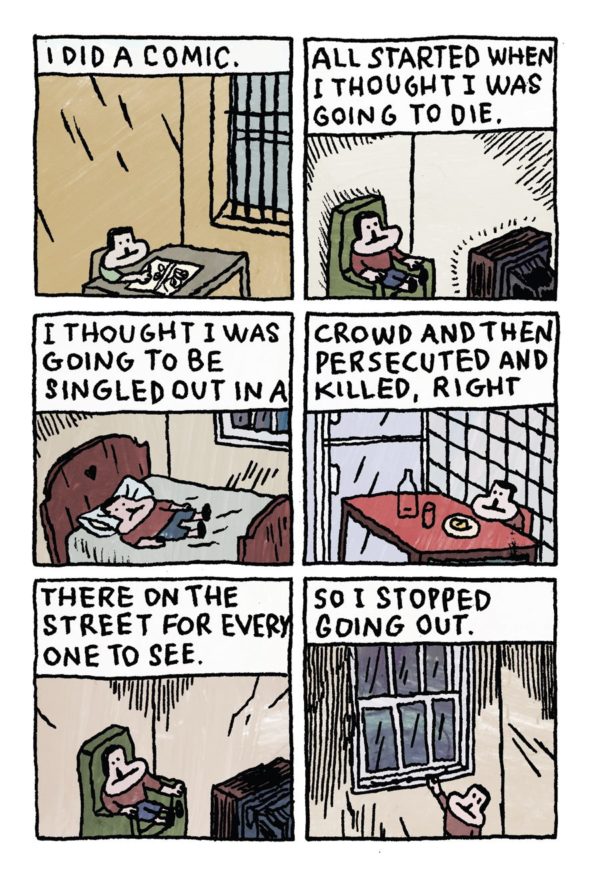
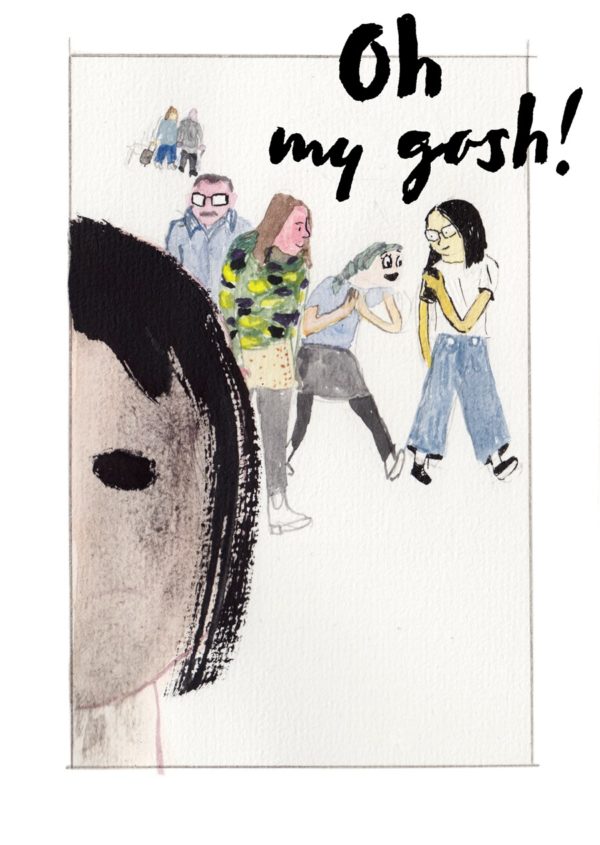
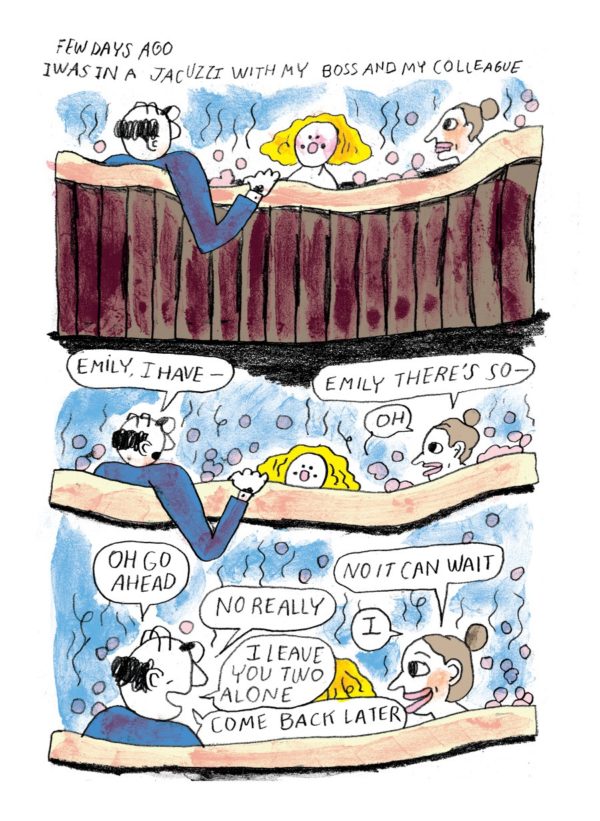
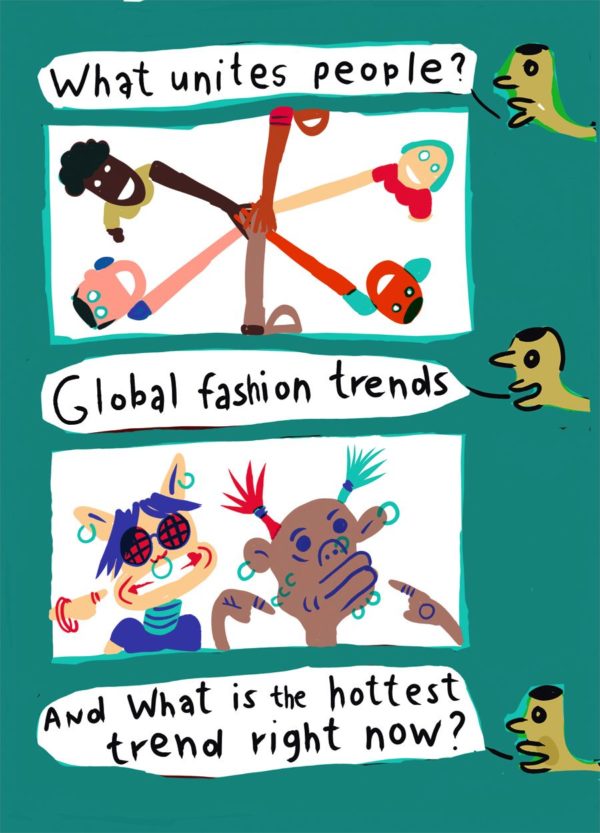
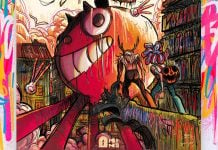
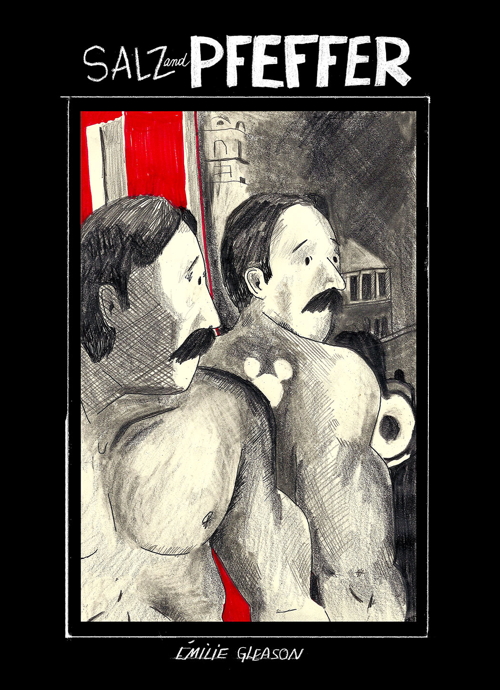


Comments are closed.